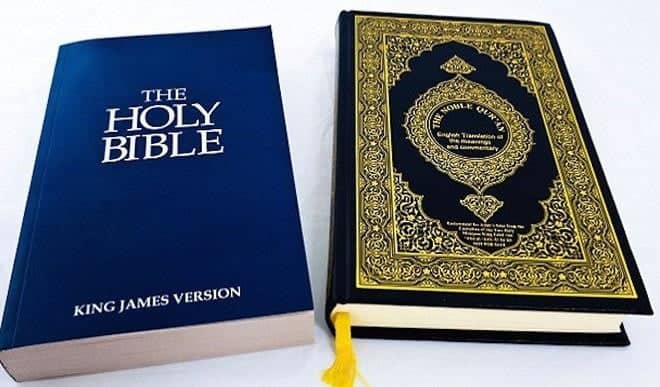Africa News
Taxes Must Be Paid On Religious Books – Uganda Revenue Authority Says


Uganda imposes tax on Bibles, Koran
Uganda has imposed taxes on religious groups for sale of Bibles, Koran, prayer and hymn books.
Naija News learnt that the country’s Revenue Authority (URA) imposed the taxes prompting clerics across faith groups expressing consternation and disbelief.
The clerics are insisting that religious materials should be tax-free since they use them for “spiritual nourishment” of Ugandans.
However, the URA commissioner general, Ms Doris Akol, disagreed, saying the practice of not taxing the entities and materials was in the first place “an anomaly“.
“We understand that Value-Added Tax (VAT) has in the past not been paid on the said Bibles, prayer books and hymn books. This was an anomaly,”
Ms Akol was responding to a petition a month earlier by the Church of Uganda Archbishop Stanley Ntagali. The prelate had asked the tax man to release a consignment of 9,120 prayer and hymn books imported from Nairobi, Kenya, without the church having to pay VAT.
The Archbishop Ntagali noted that items had been shipped in by Centenary Publishing House Limited, Church of Uganda’s (CoU) publishing arm, which in his view should be tax-exempt.
“It is from this point of view that we write to you, appealing that the VAT be waived… since they (books) are used to educate the masses and Christians by spreading the word of God as our nation’s motto affirms, ‘For God and my country,” he stated.
Ms Akol said she had no power to waive a tax not excluded under the law and, as such, URA released the consignment only after CoU paid Ush8.9 million ($2,395).
In a country where nine out of every 10 citizens are either Christians or Muslims, the proposed tax that a church official said would result in increase of, for instance, a hymn books’ cost by Ush3,000 ($0.80).
However Mr Joshua Kitakule, the secretary general of the Inter-Religious Council of Uganda, in his views, said religions should not be entirely tax-exempt but imposing 18 per cent VAT on Bibles, Korans and prayer books would be “erroneous“.
“These items are not meant for profit; so, it is erroneous to tax them. Prayer books are supposed to strengthen the spiritual nourishment of individuals,” he said.












